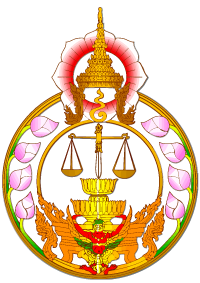
ศาลอุทธรณ์
According to the Law for the Organization of Courts of Justice, the Court of Appeal had the power to adjudicate all appellate cases until 1990, when it appeared that there had been a large backlog of cases. It was believed that reducing the size of the Court of Appeal by establishing the regional Courts of Appeal responsible for cases appealed from other provinces would help cases to be managed and administered more flexibly and more efficiently. Therefore, the regional Courts of Appeal have been established. As of December 1, 1997, there are 9 regional Courts of Appeal, namely: the Court of Appeal Region I – IX.
Later, the Narcotics Cases Procedure Act B.E. 2550 has established the Narcotics Cases Division in the Court of Appeal, which has the power to adjudicate narcotics cases appealed from courts of first instance. Additionally, the Consumer Case Procedure Act B.E. 2551 has established the Consumer Cases Division in the Court of Appeal and the regional Courts of Appeal granting the power to adjudicate consumer cases appealed from courts of first instance. The Court of Appeal has the sole authority to consider the appeals regarding narcotics cases, human trafficking cases and the corruption and misconduct cases nationwide in accordance with the Narcotics Cases Procedure Act B.E. 2550, the Anti – Human Trafficking Procedure Act B.E. 2559 and the Corruption and Misconduct Case Procedure Act B.E. 2559 respectively.
Act on the Establishment of and Procedure for the Court of Appeal for Specialized Cases Act B.E. 2558 has established the Court of Appeal for Specialized Cases for trying and adjudicating cases appealed from specialized courts as follows: the Central Intellectual Property and International Trade Courts, the Central Tax Courts, the Labor Courts, the Bankruptcy Courts as well as Juvenile and Family Courts. This Court commenced operating on October 1, 2016. Therefore, there are, currently, 11 courts at the appellate level, namely the Court of Appeal, the Court of Appeal Region I – IX, and the Court of Appeal for Specialized Cases.
In sum, the Court of Appeal has the power of adjudicating appeals against judgments or orders of the courts of first instance as well as the power pursuant to other specific laws. For example, an order relating to provisional release considering the matters, a motion of suspending the legal execution according to the Civil Procedure Code and the extradition case pursuant to the Extradition Act B.E. 2551. The role of the Court of Appeal is reviewing and revising judgements of courts of the first instance.
Since 2015, there has been a change in the appeal system of Thailand. The judgements and orders rendered by the Court of Appeal regarding civil cases are final except that the Supreme Court grants the permission. As for circumstances, there remains the same appeal system that the party generally is able to appeal his/her cases to the Court of Appeal and the Supreme Court respectively. However, narcotics cases and human trafficking cases are finalized by the Court of Appeal’s decision except that the Supreme Court will grant the permission.
For some specialized cases, the President of the Court of Appeal has a sole authority to determine whether a particular case is a consumer case, a human trafficking case or a corruption and misconduct case governed by special laws or not. Such determination is final.
The Court of Appeal is headed by the President assisted by the Vice – President and the Presidents of the specialized divisions. At least three justices make up a quorum of justices. IN addition, the Court of Appeal has the Research Division consisting of research judges. The primary function of the Research Division is to assist justices by examining all relevant factual and legal issues of the cases, conducting legal research and discussing with those justices to ensure uniformity and fair result of cases. The President and justices/judges of the Court of Appeal shall be appointed by the King pursuant to the law. The personnel of the Court of Appeal are determined to work with the resolution of “Expertise, Fairness, Modernity, and Emphasis on Economy and Society.”





